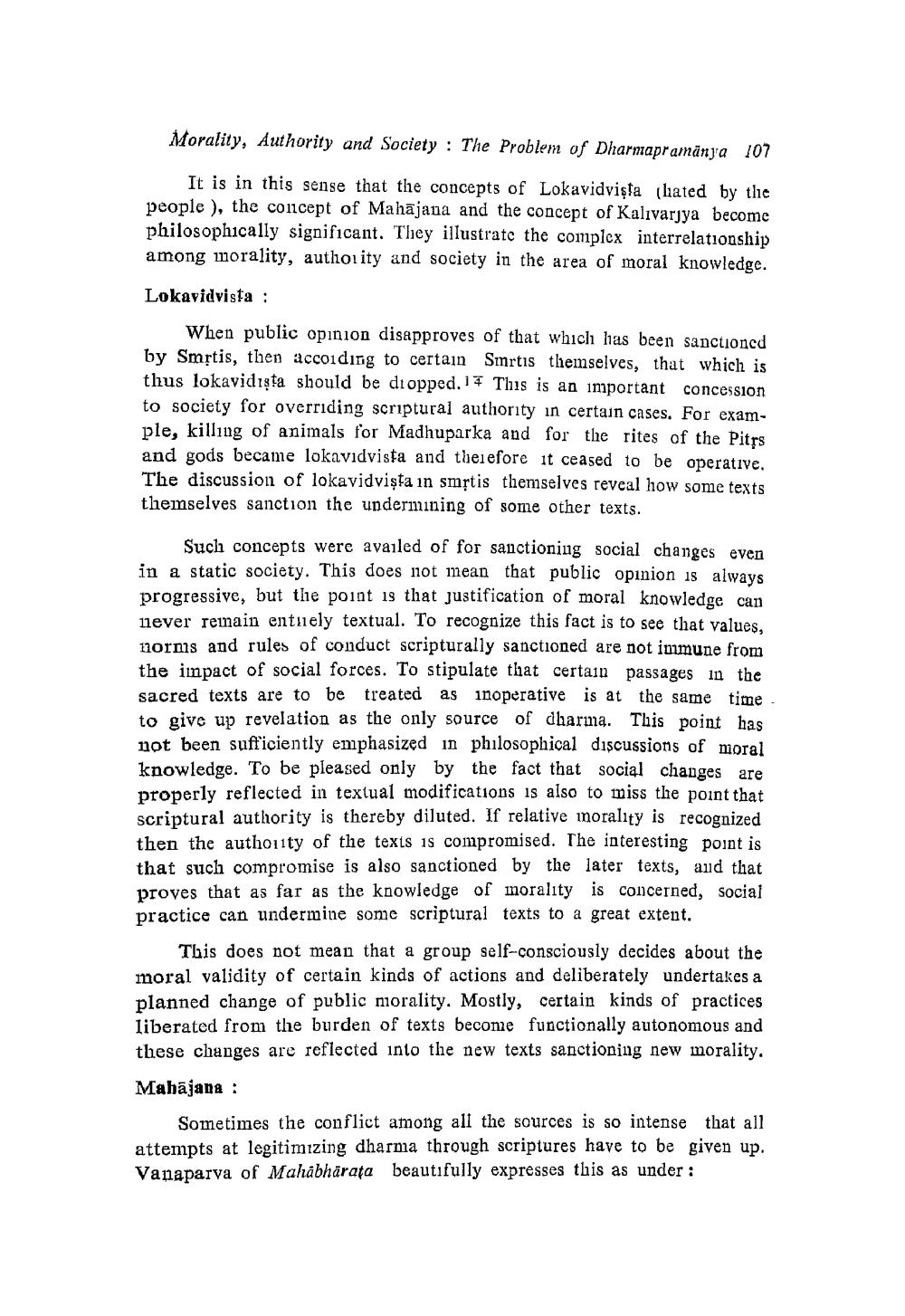________________
Morality, Authority and Society: The Problem of Dharmapramanya 107
It is in this sense that the concepts of Lokavidvista (hated by the people ), the concept of Mahajana and the concept of Kalivarjya become philosophically significant. They illustrate the complex interrelationship among morality, authority and society in the area of moral knowledge. Lokavidvista :
When public opinion disapproves of that which has been sanctioned by Smrtis, then according to certain Smrtis themselves, that which is thus lokavidışta should be dropped. 14 This is an important concession to society for overriding scriptural authority in certain cases. For example, killing of animals for Madhuparka and for the rites of the Pitrs and gods became lokavidvista and therefore it ceased to be operative. The discussion of lokavidvişta in smrtis themselves reveal how some texts themselves sanction the undermining of some other texts.
Such concepts were availed of for sanctioning social changes even in a static society. This does not mean that public opinion is always progressive, but the point is that justification of moral knowledge can never remain entirely textual. To recognize this fact is to see that values, norms and rules of conduct scripturally sanctioned are not immune from the impact of social forces. To stipulate that certain passages in the sacred texts are to be treated as inoperative is at the same time to give up revelation as the only source of dharma. This point has not been sufficiently emphasized in philosophical discussions of moral knowledge. To be pleased only by the fact that social changes are properly reflected in textual modifications is also to miss the point that scriptural authority is thereby diluted. If relative morality is recognized then the authority of the texts is compromised. The interesting point is that such compromise is also sanctioned by the later texts, and that proves that as far as the knowledge of morality is concerned, social practice can undermine some scriptural texts to a great extent.
This does not mean that a group self-consciously decides about the moral validity of certain kinds of actions and deliberately undertakes a planned change of public morality. Mostly, certain kinds of practices liberated from the burden of texts become functionally autonomous and these changes are reflected into the new texts sanctioning new morality. Mahajana:
Sometimes the conflict among all the sources is so intense that all attempts at legitimizing dharma through scriptures have to be given up. Vanaparva of Mahabharata beautifully expresses this as under:




